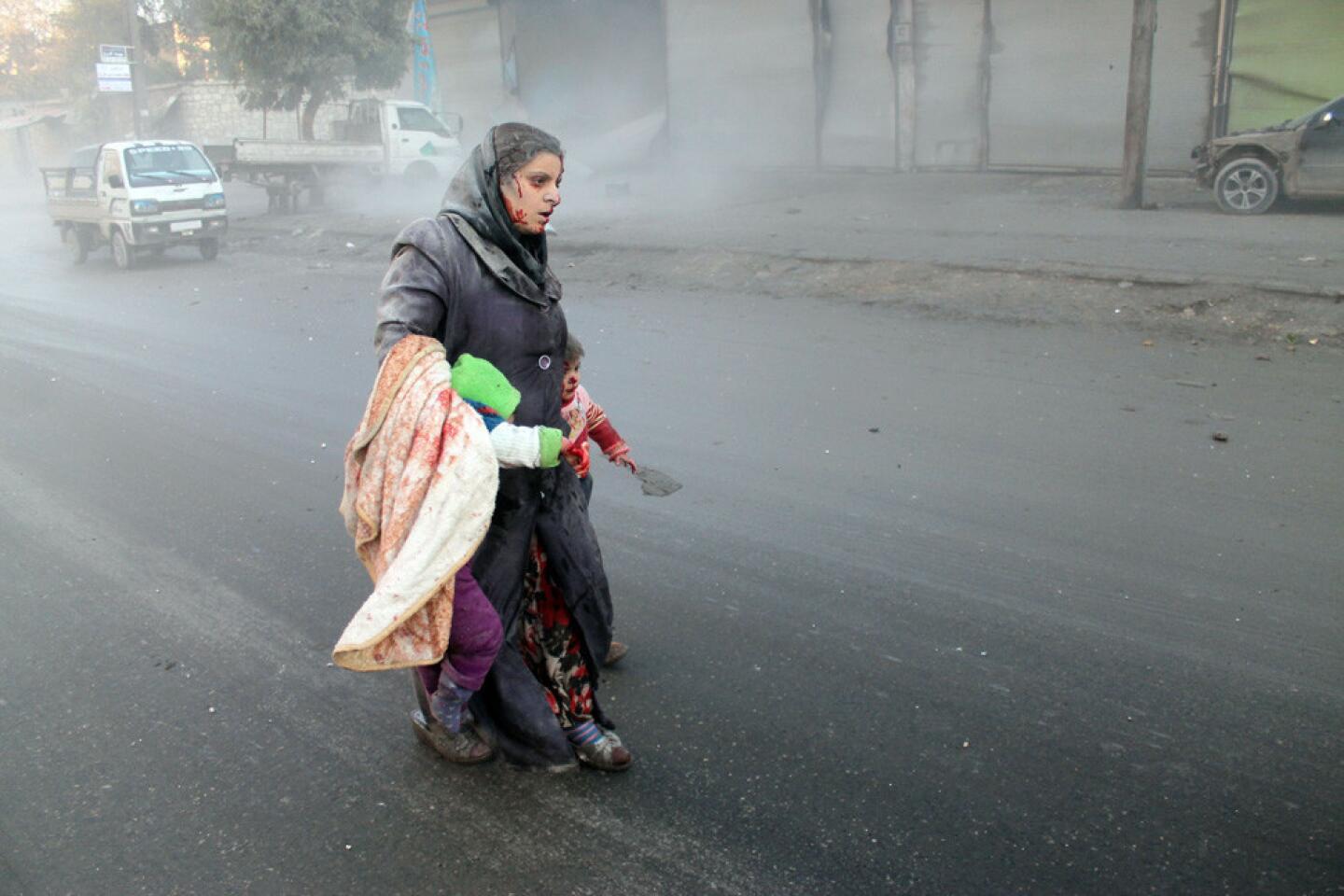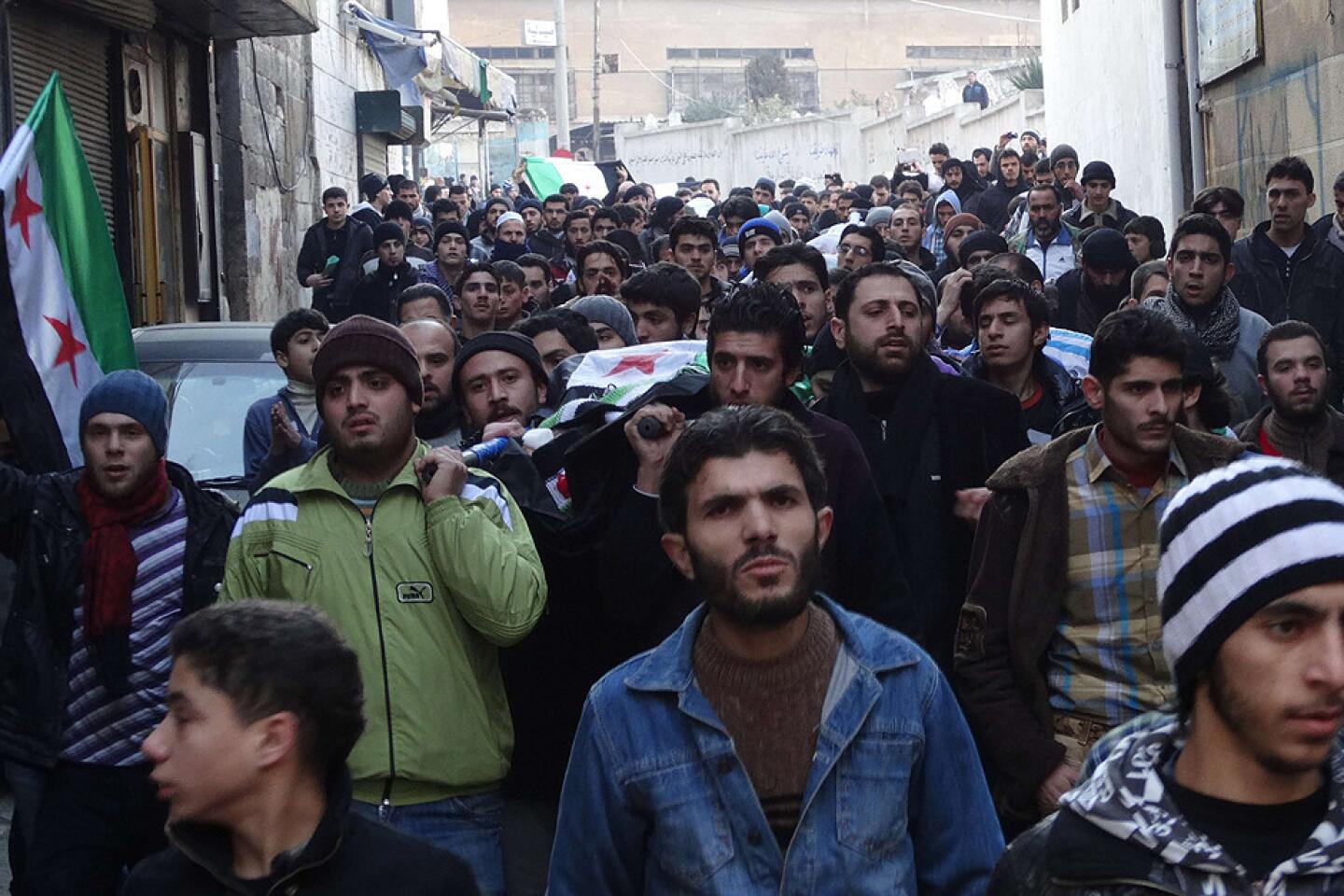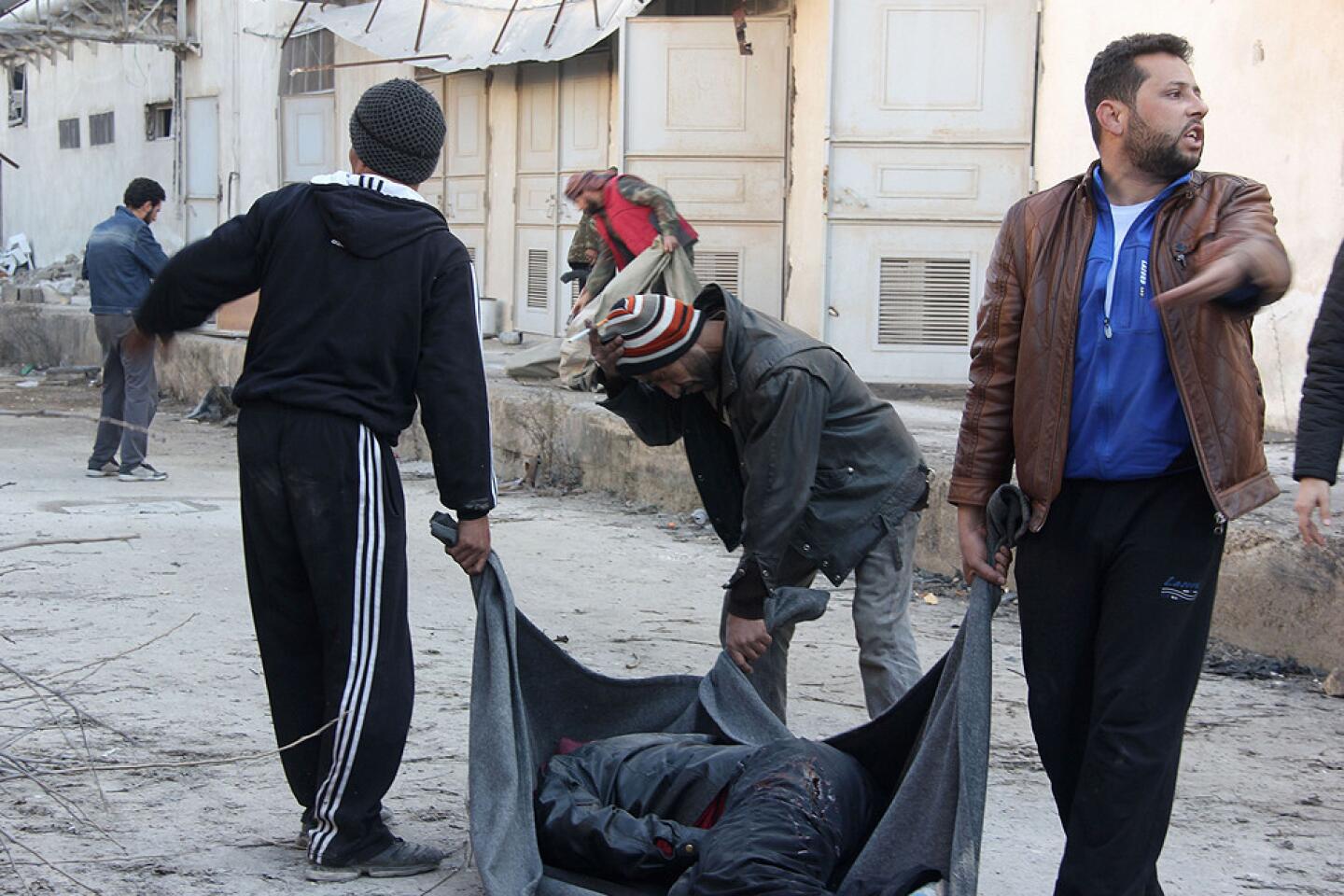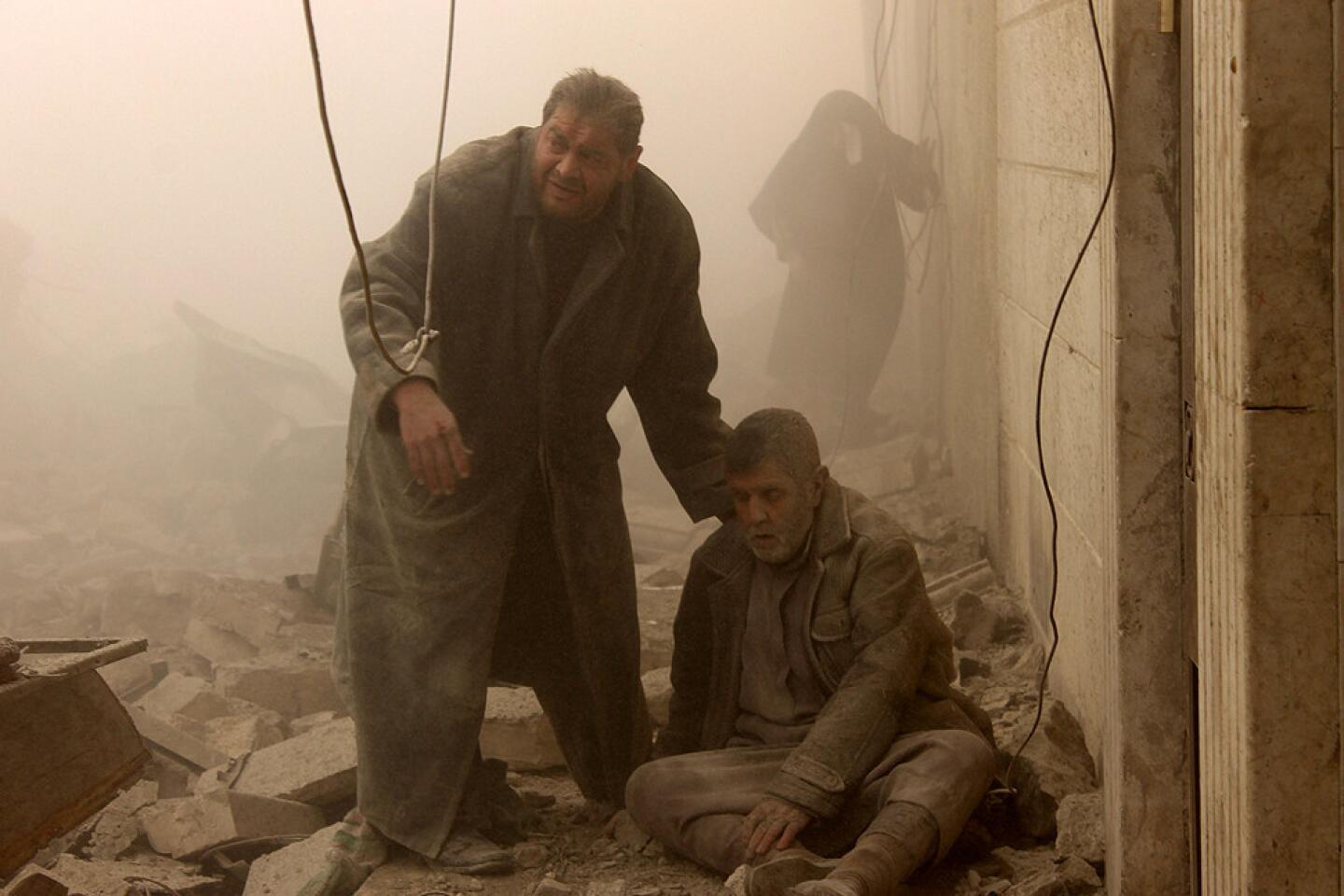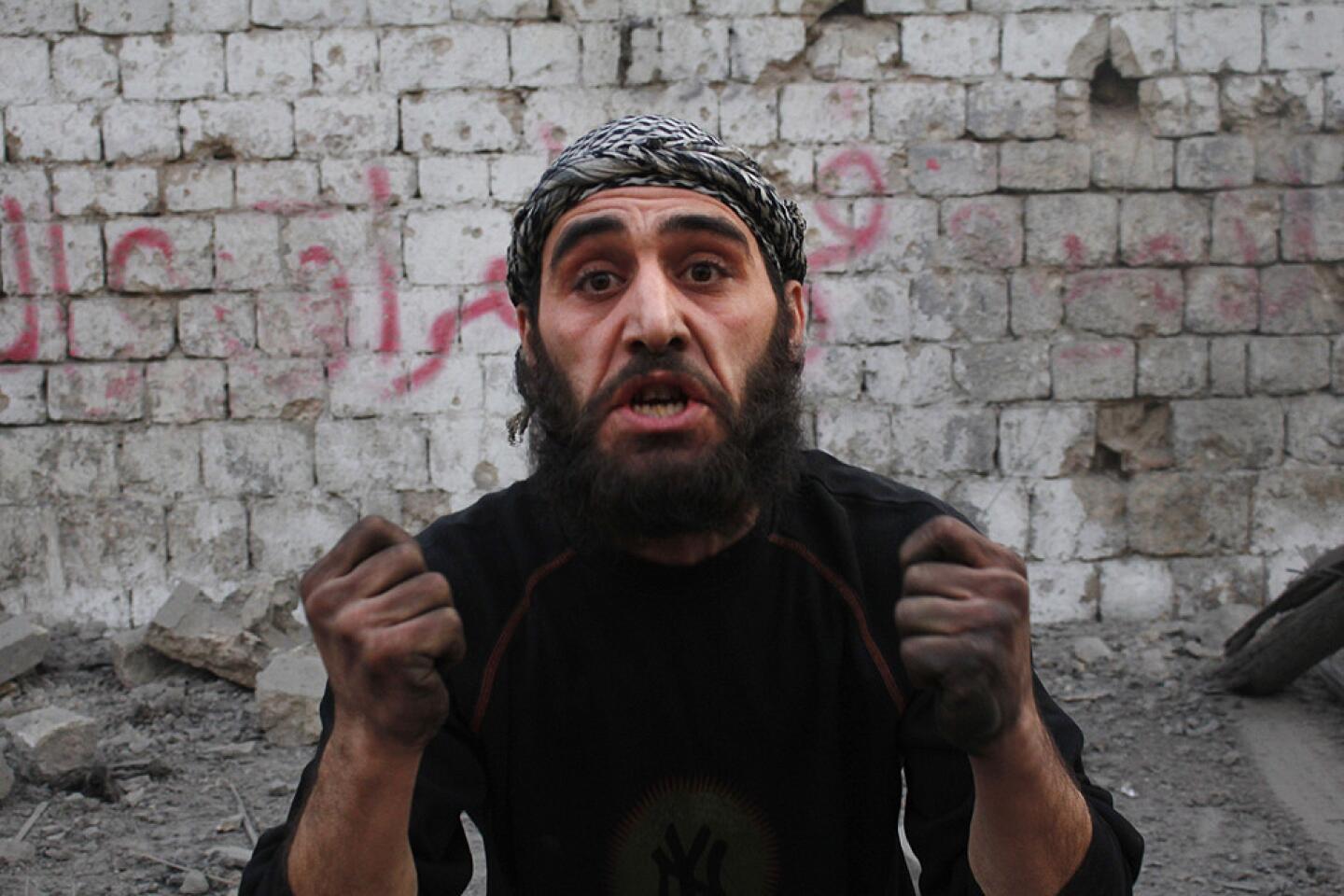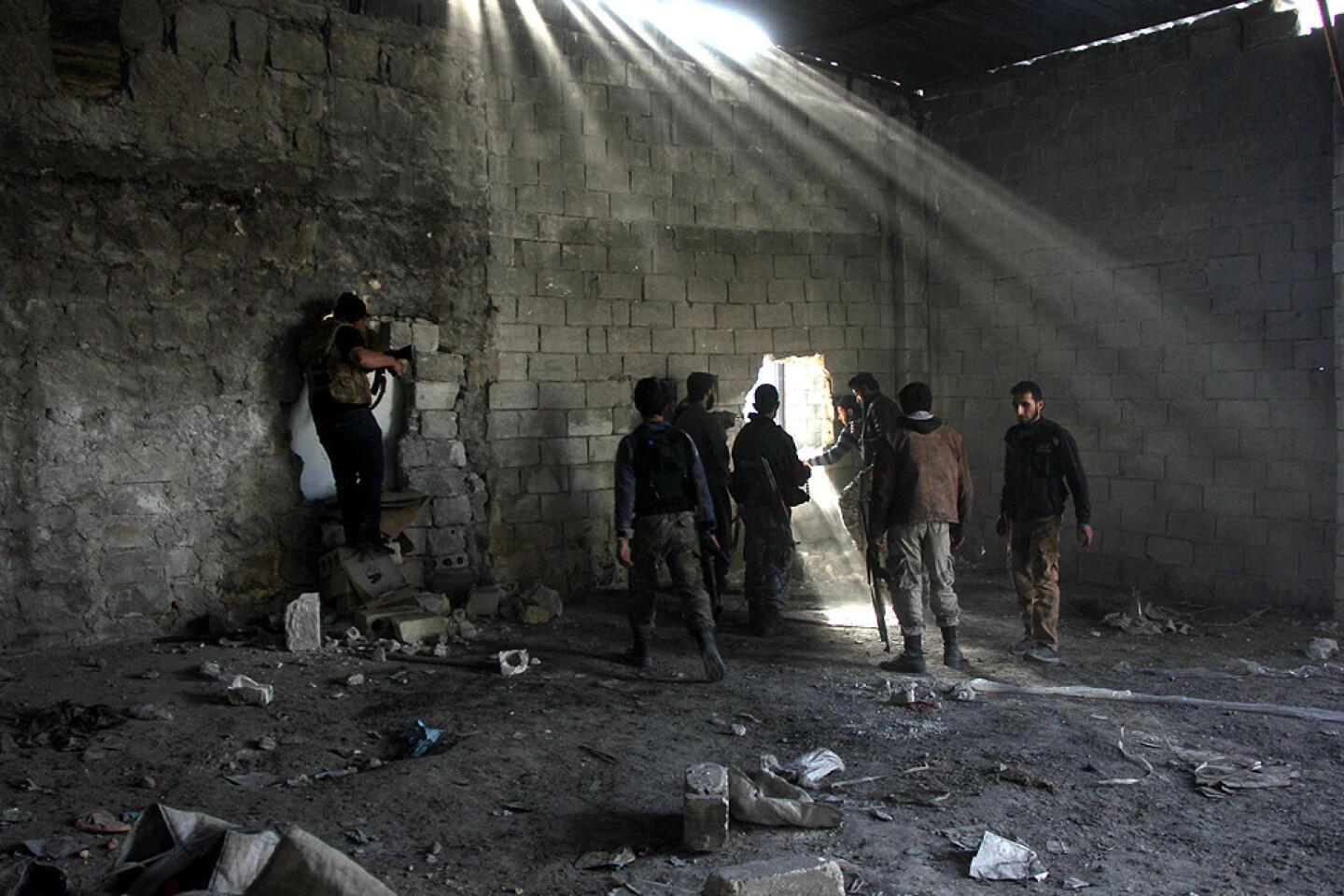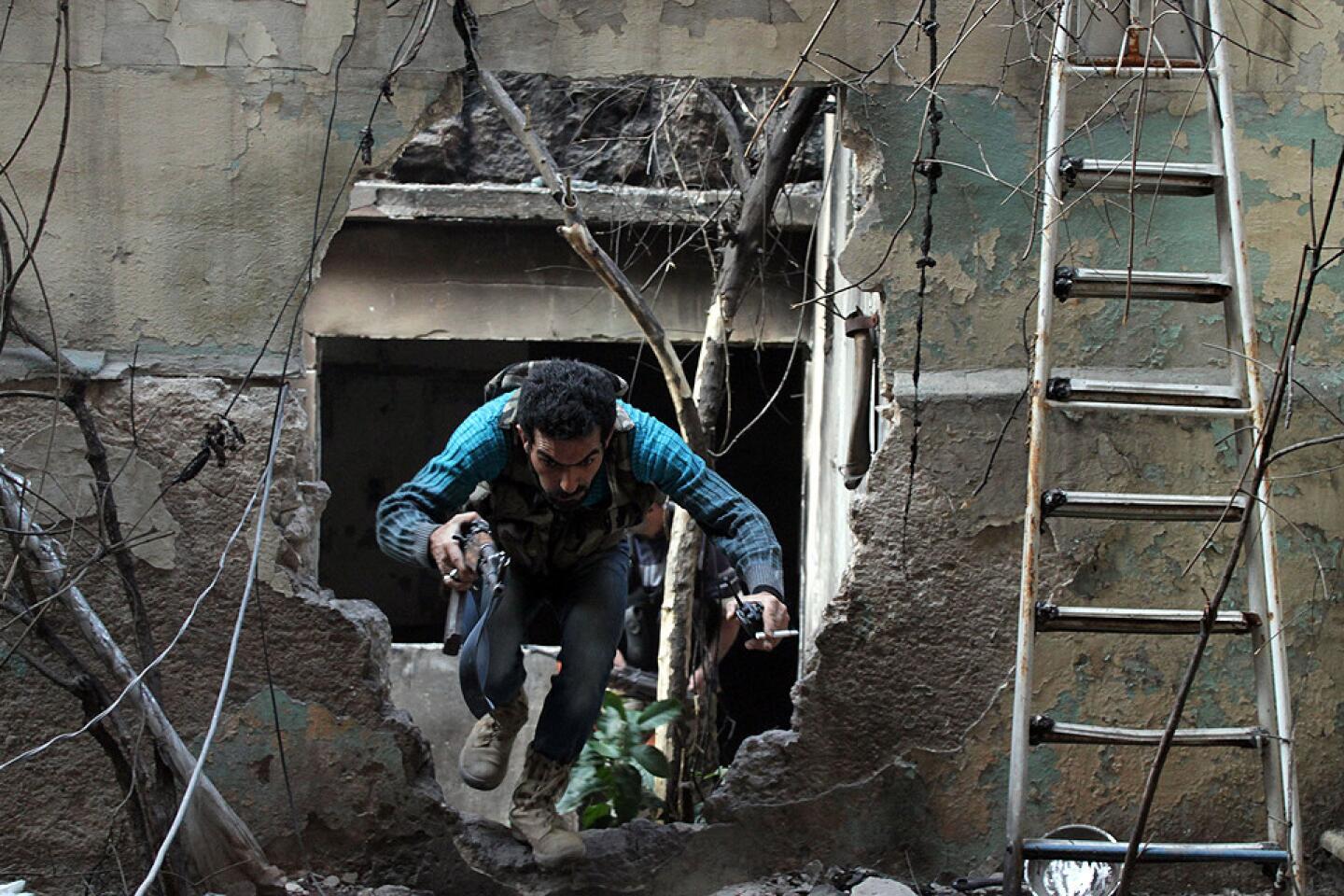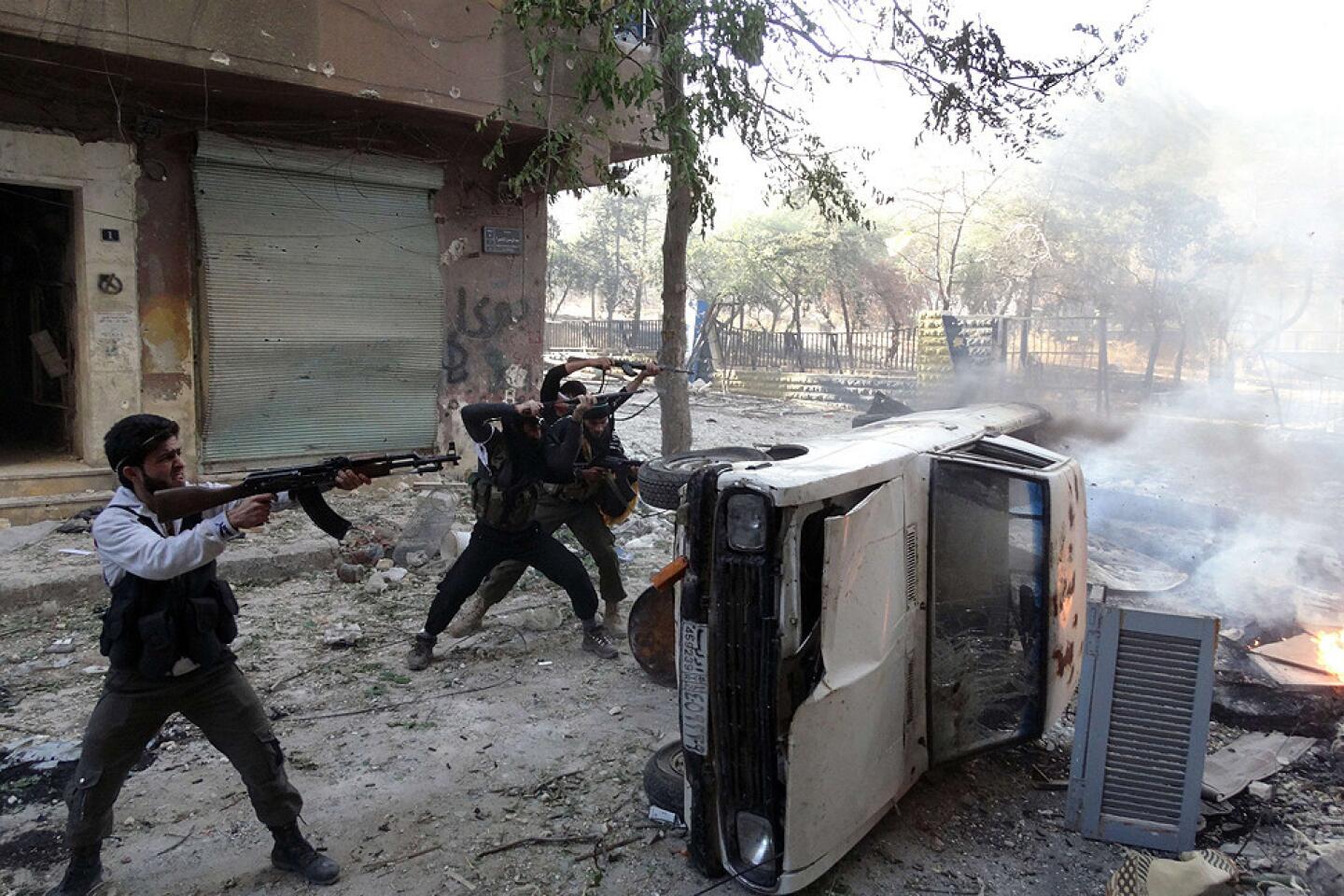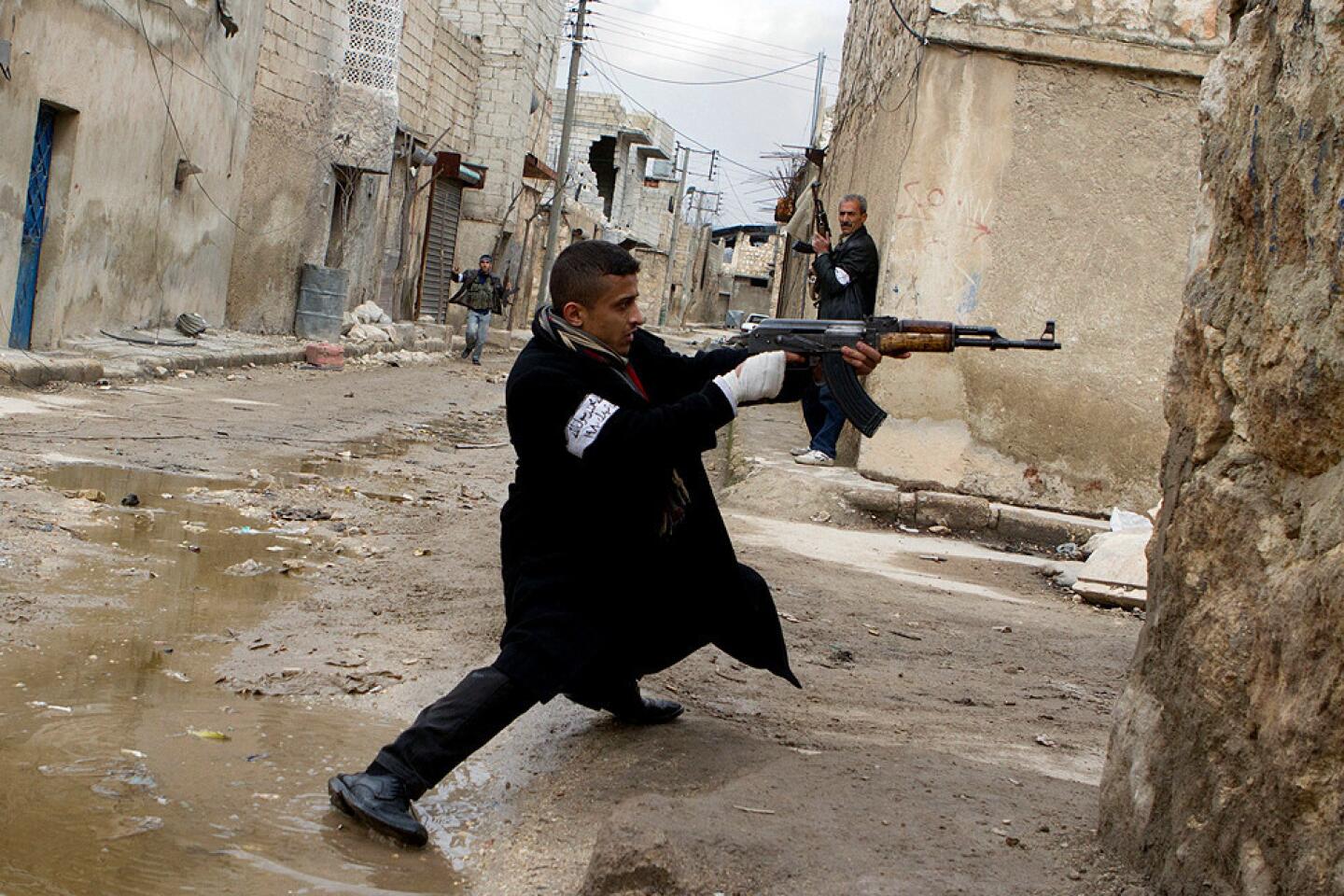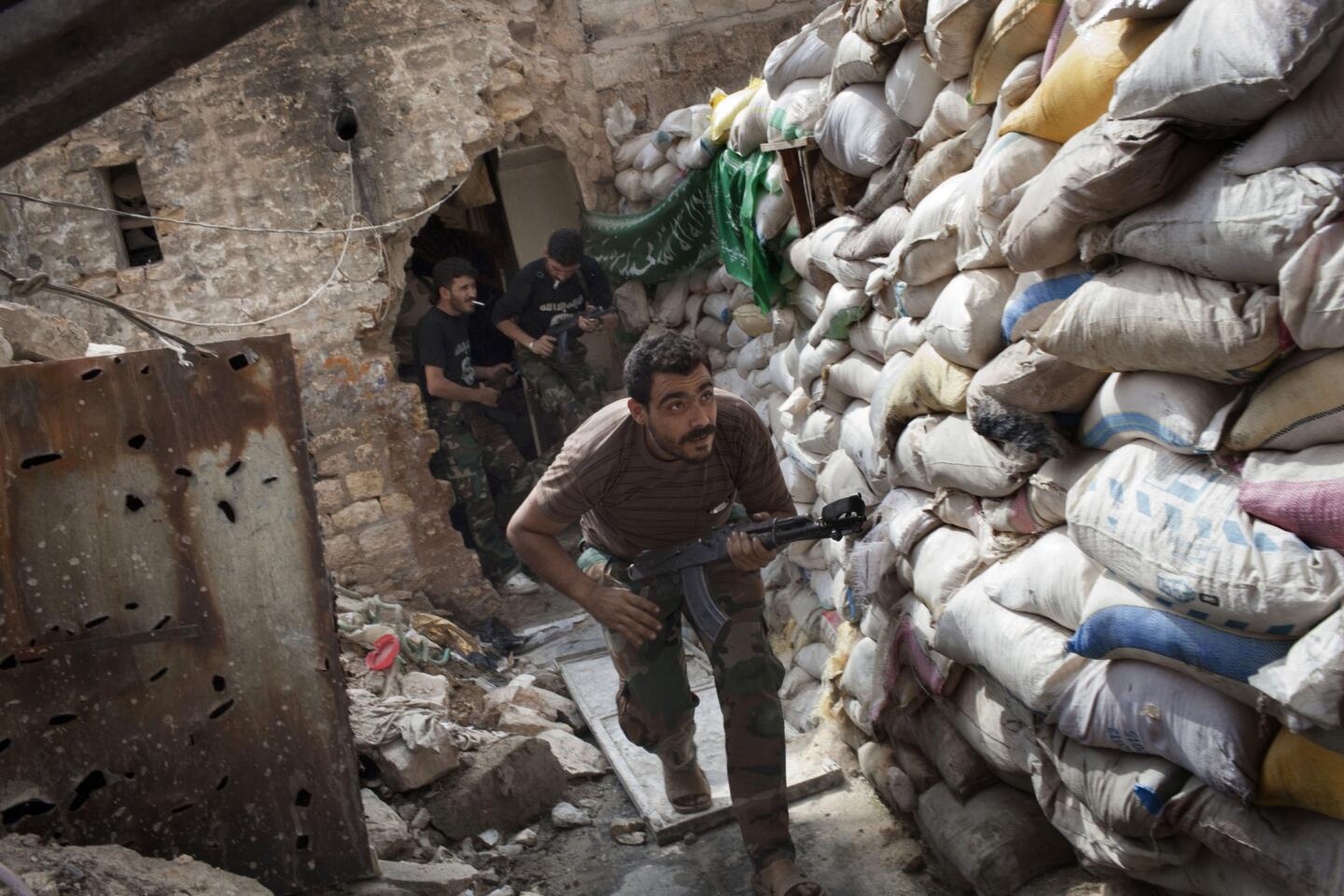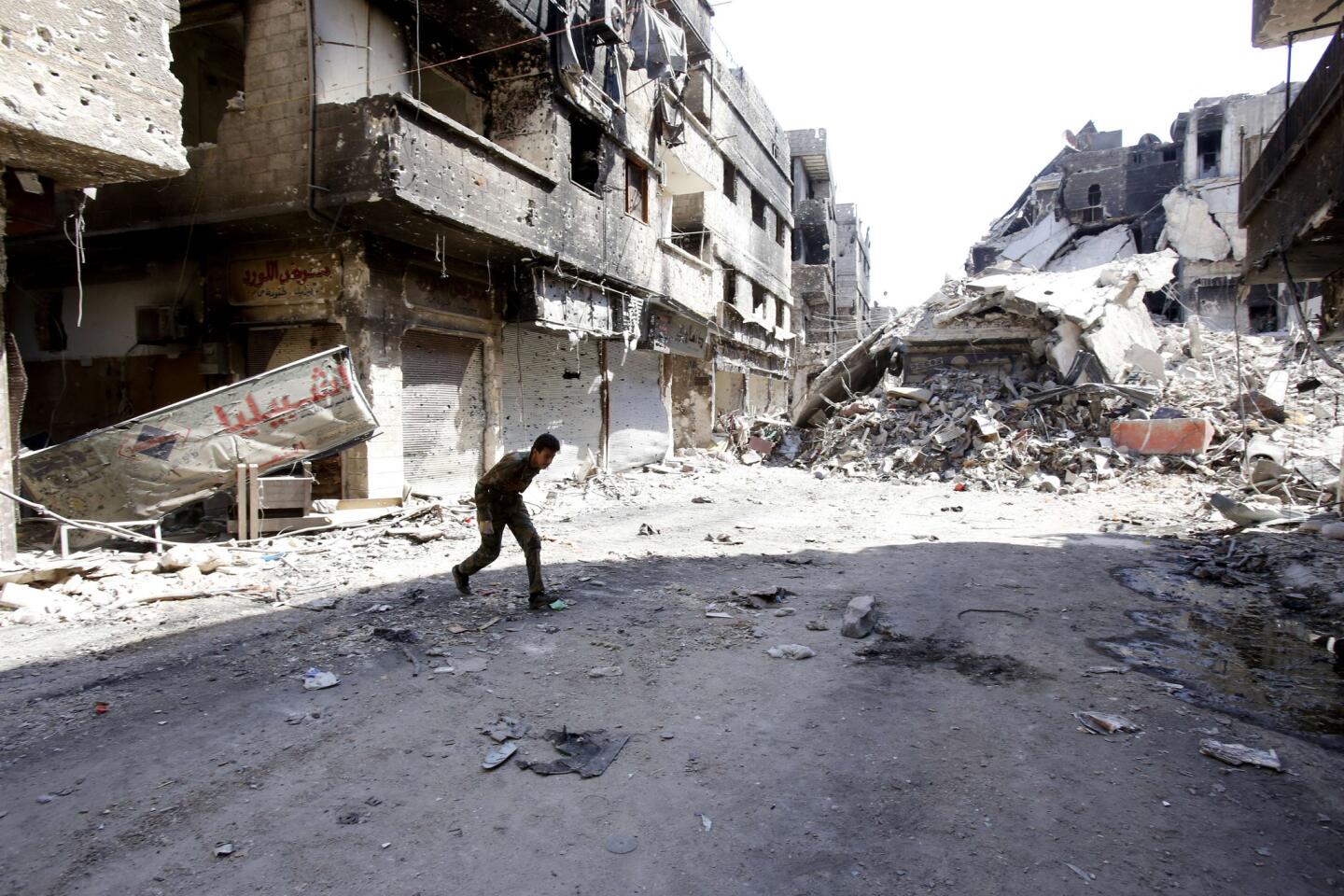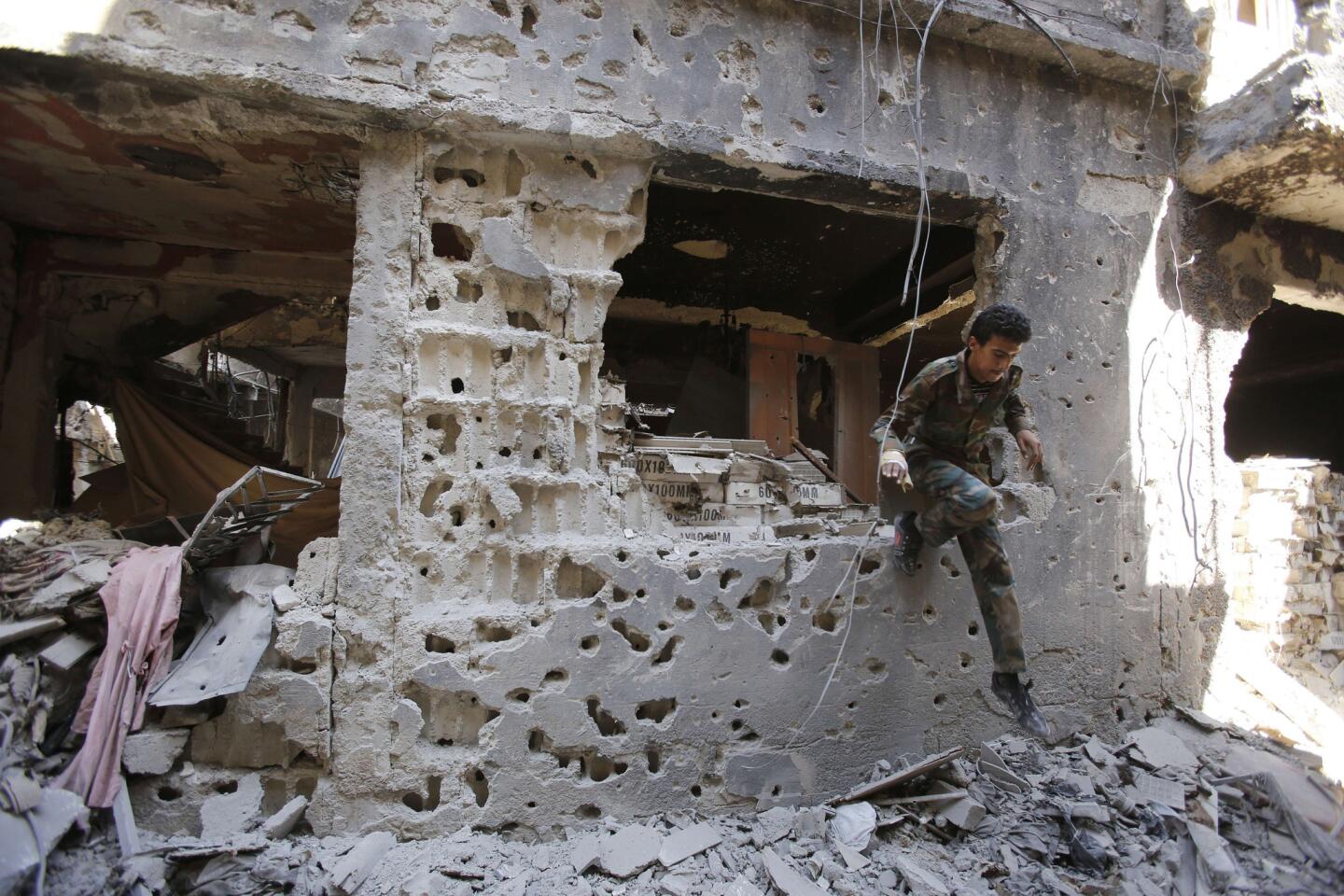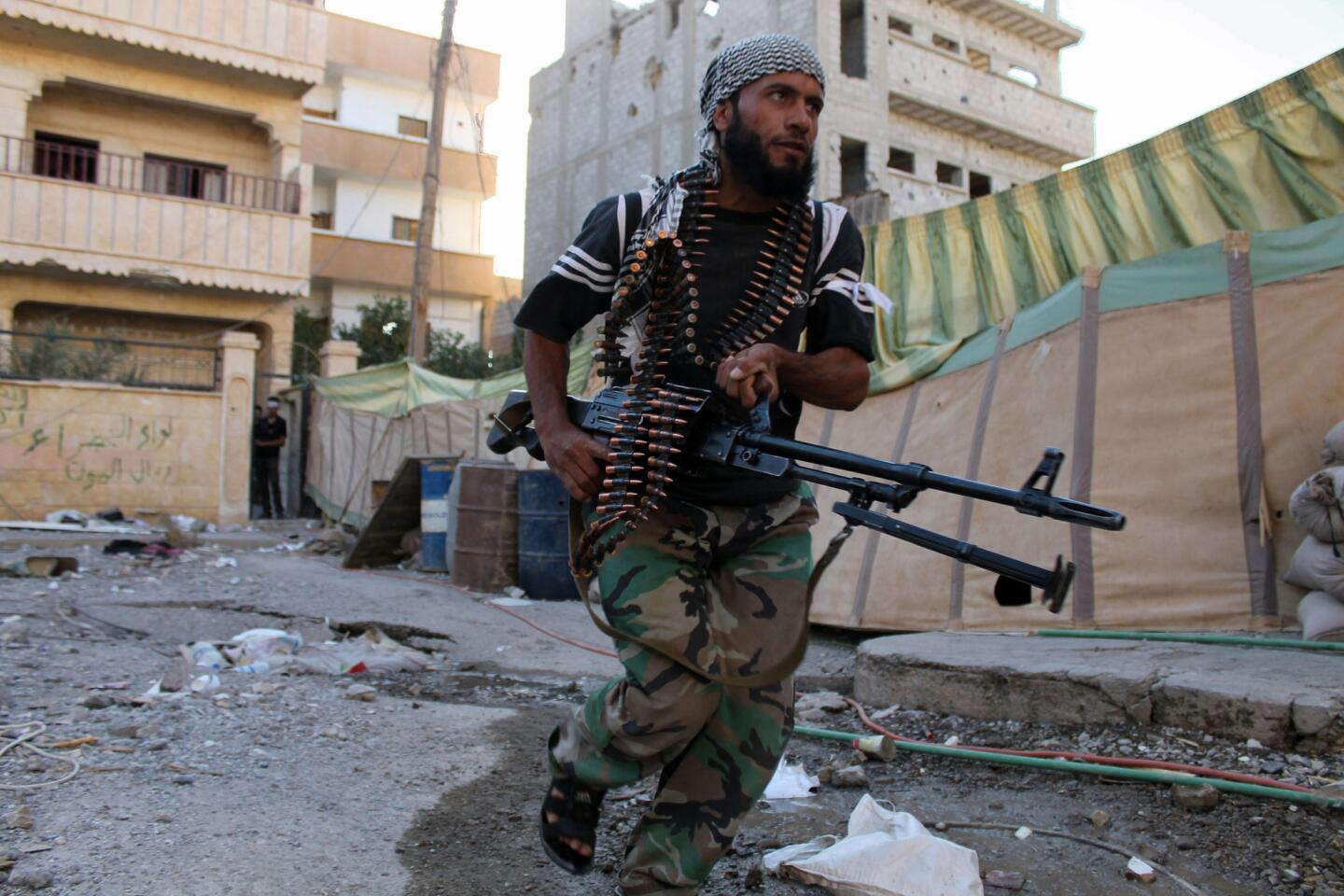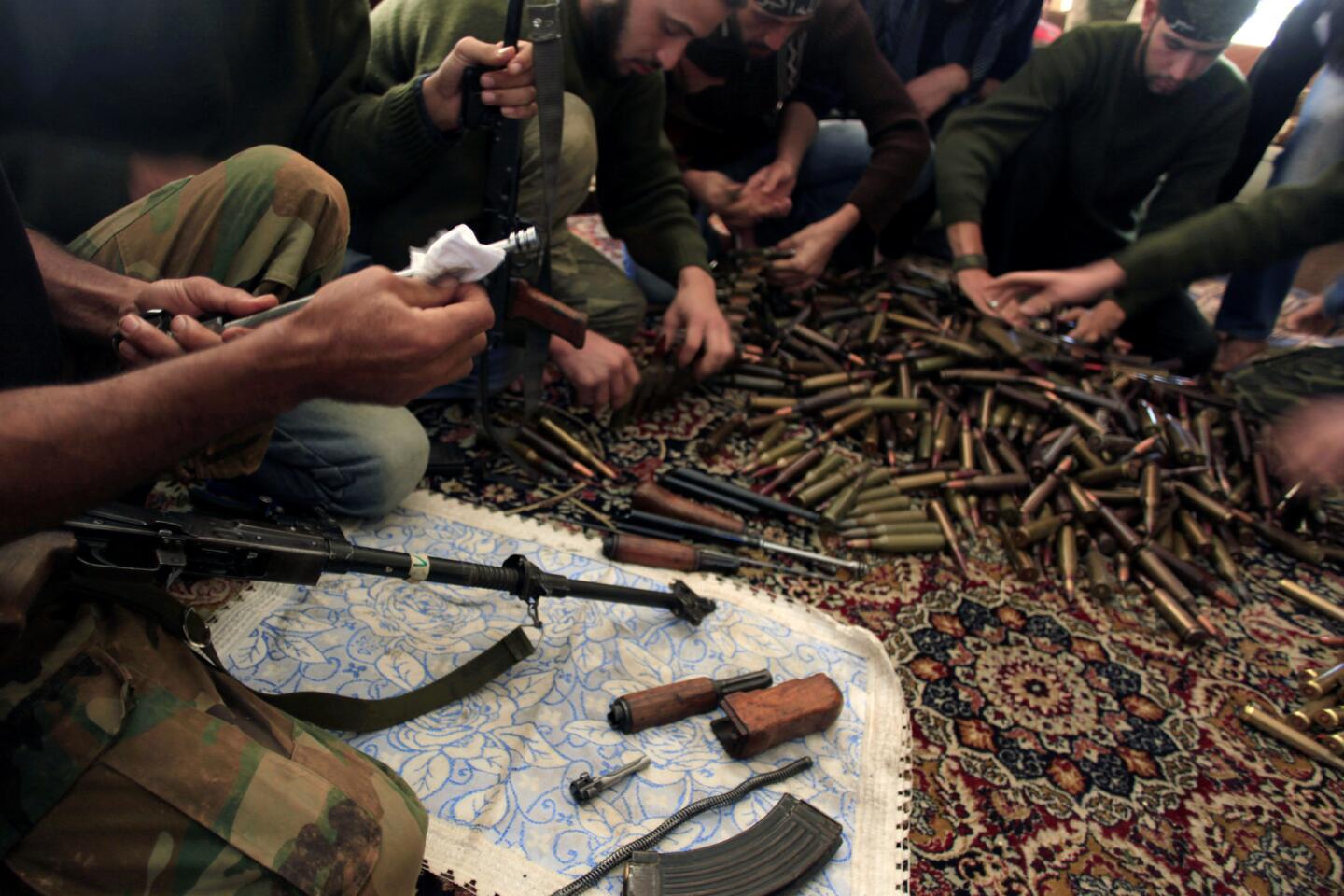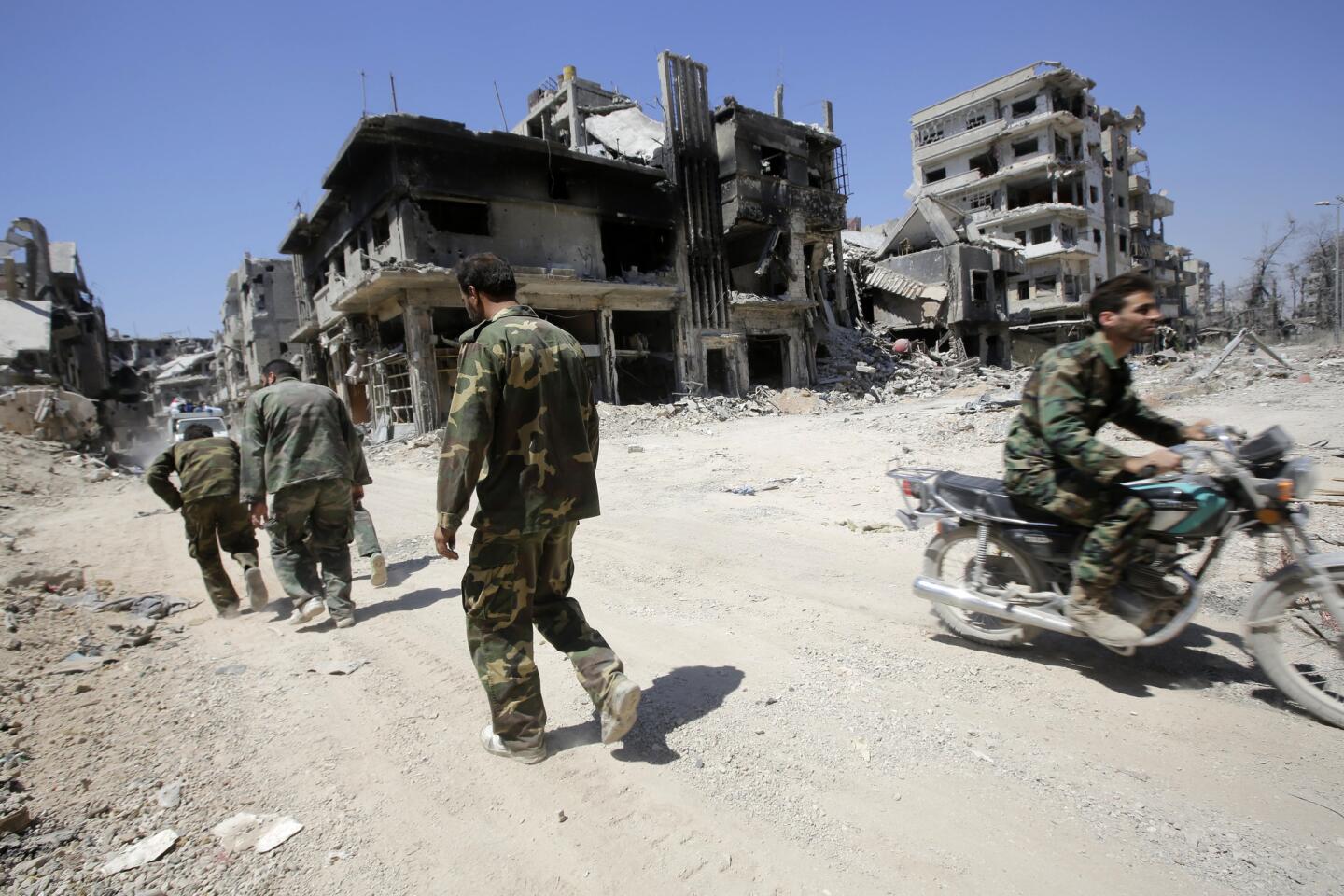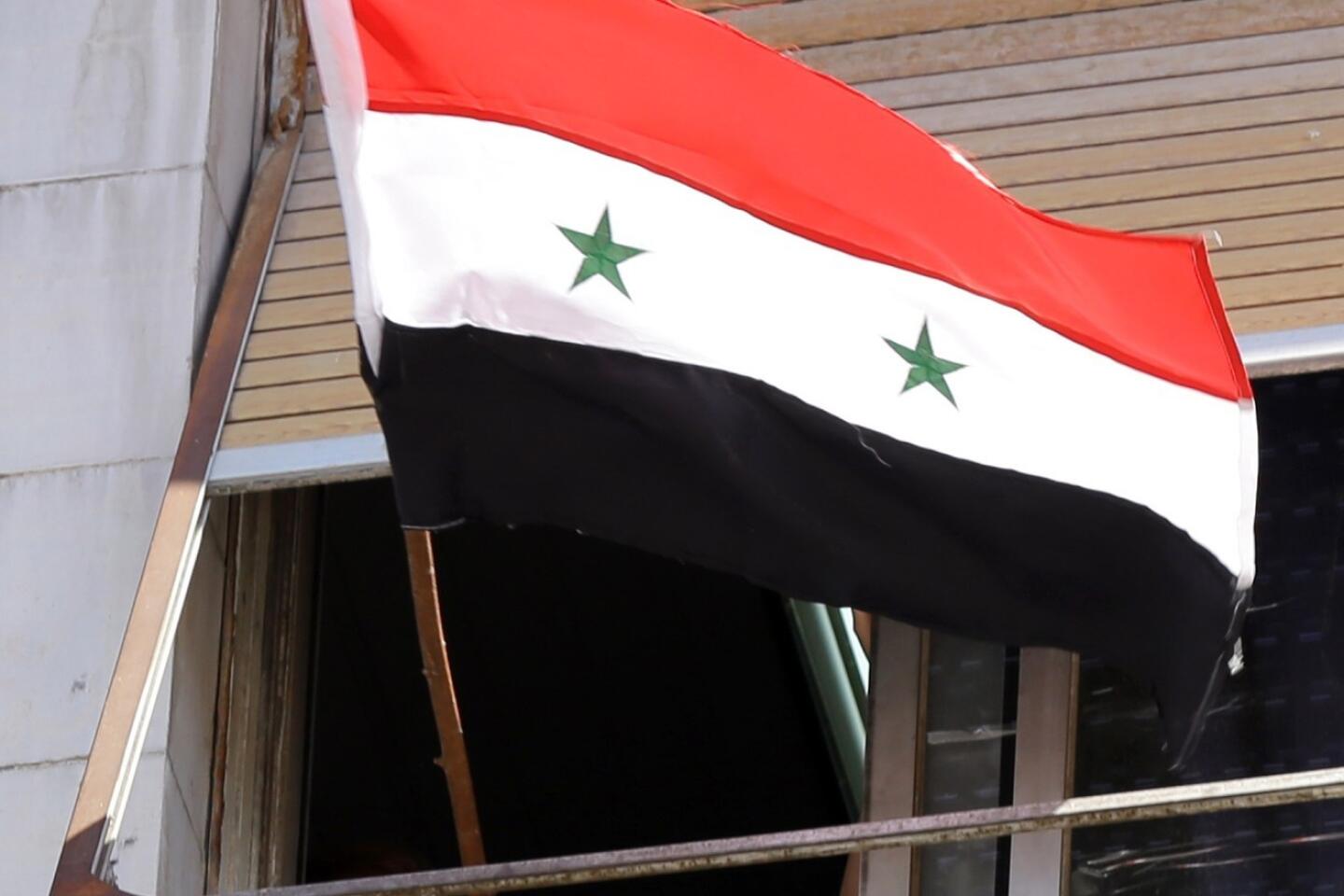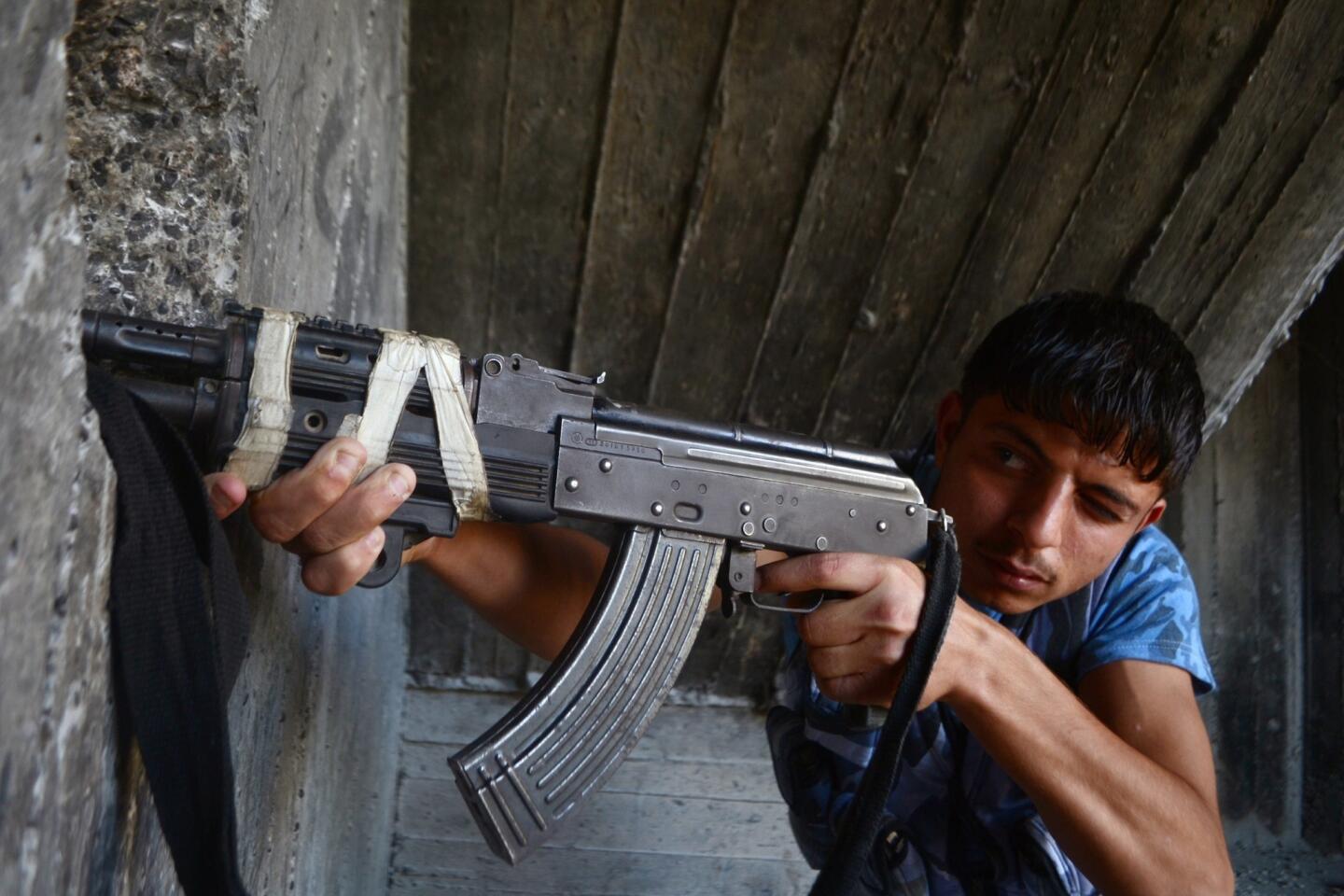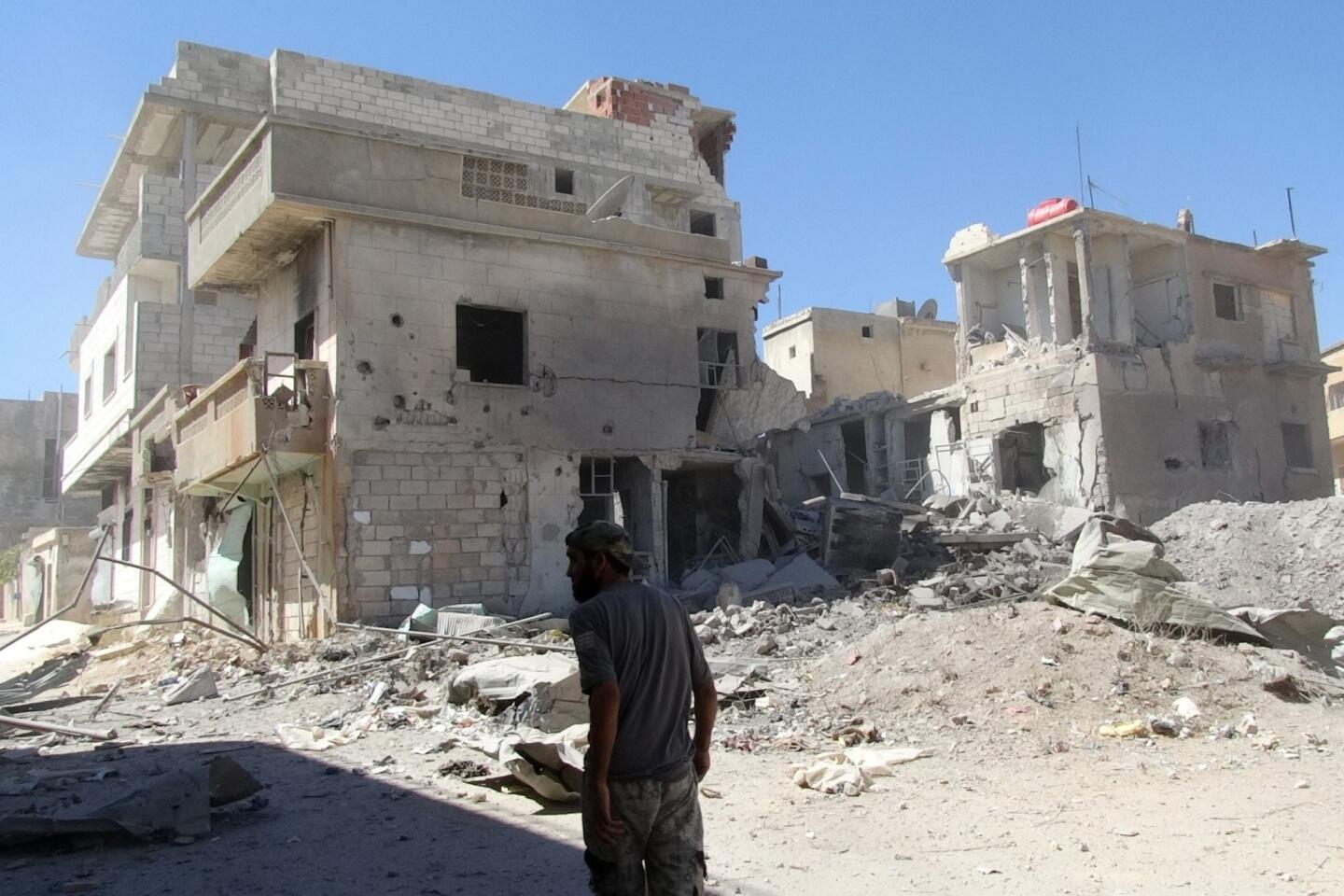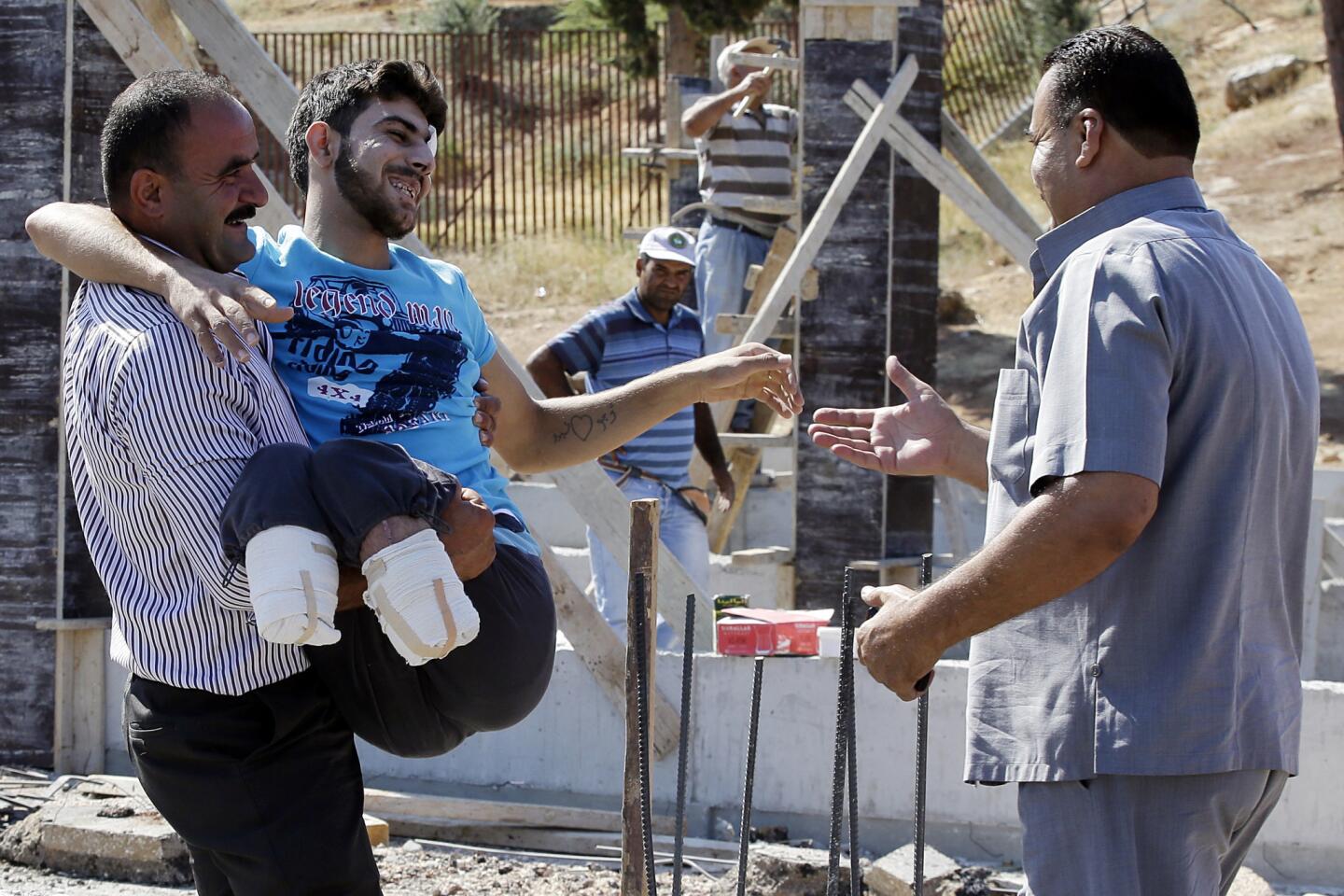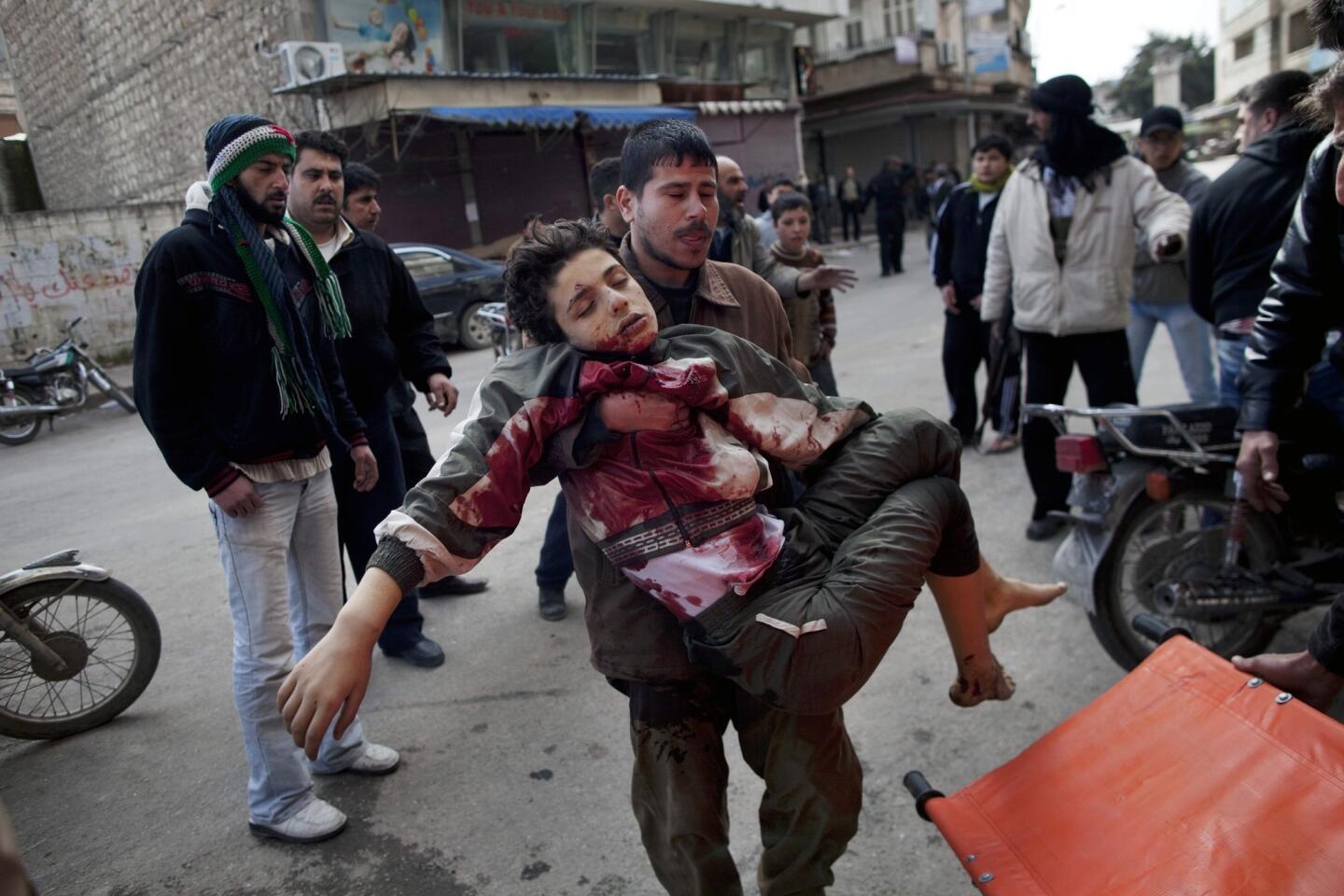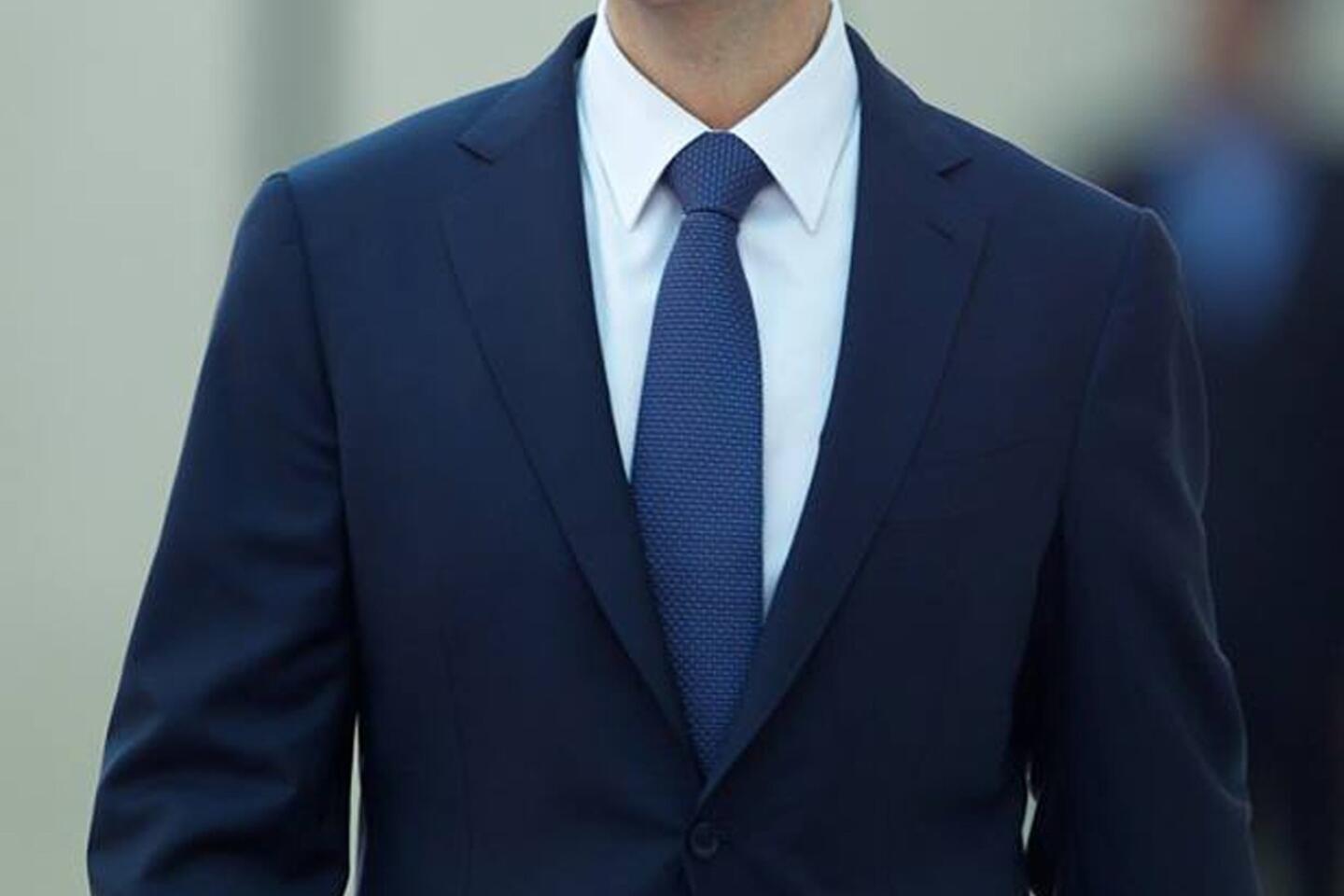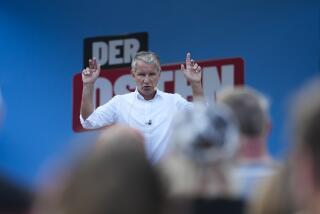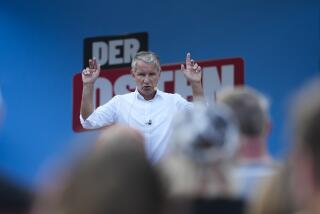In Syria, the number of political parties is skyrocketing
ALEPPO, Syria — In the newly opened office of the Islamist Liberation Party, the chairs were still covered with plastic and the walls were bare except for three Islamic black and white flags hanging behind Hisham Baba, the party’s spokesman. Political pamphlets fresh from the printer had yet to be folded.
On that day, during which Baba prepared political and religious presentations on his laptop, more than two dozen people were killed in and around Aleppo.
Even as the Syrian civil war rages on in its third year with dim prospects for a resolution, Islamist, secular, nationalist and other groups in rebel-controlled areas are jockeying to present themselves as the best alternative to the government of President Bashar Assad.
From the early days of the uprising, opposition members spoke of the country’s future as a “marketplace of ideas,” where the public could choose from a range of political and ideological groups. Even as the bloody war fractures the nation along sectarian and ideological lines, many still hold on to this idea even if the possibility seems faint.
This theoretical “marketplace” has been undercut by the chaotic and violent state the country now finds itself in. And many fear that a power vacuum could open the door for an iron fist to replace the current one, particularly in light of the political groups that each claim to speak for the masses.
Even as daily battles and government shelling and airstrikes continue, political parties are being formed with a sense of urgency, motivated by the belief that waiting too long risks ceding the political agenda to others, whether it be Westerners, Western-backed exiles or those espousing a different ideology.
Political dissidents estimate that about 200 parties have already been established, though few seem to have any real presence in Syria. Political conferences are said to be held several times a month to announce new parties, whose number increased when U.S. airstrikes against the Syrian government seemed imminent.
“It’s a big opportunity,” said Ahmad Breemo, a media organizer with the Islamist Liberation Party, which has been banned in many Arab countries for decades. “It is mandatory for the politically cognizant men to put forward our vision and platform instead of waiting for the West to come and impose their politics on us.”
Islamist groups in particular see an opening after decades of persecution by the secular Baath Party.
Last month, nearly a dozen rebel groups formed an Islamic alliance and called for the opposition to be represented by those who are fighting in Syria and for Islamic law to be the basis of a future government. At the same time, the alliance denounced the Syrian National Coalition, the Western-backed opposition umbrella group, as being unrepresentative and out of touch.
“You can’t wait until the regime is gone and the transition is underway to say, ‘OK, now we’ll start a political party,’” said Amr Azm, a Syrian dissident and political science professor.
Azm, a founding member of a new secular political party that hasn’t been publicly announced yet, said many activists and would-be politicians are learning lessons from the experience of Egypt, where the final contenders for president represented the Muslim Brotherhood and remnants of former President Hosni Mubarak’s government.
The Muslim Brotherhood, which has been banned in Syria for decades and its members jailed, has opened an office in Aleppo but has held off on overt political campaigning. Three months ago, it formed a political wing, the Promise Party.
Syria, controlled by one political organization for more than four decades, remains “a political desert,” said Haitham Maleh, a longtime dissident and political prisoner.
“This is a good thing for them to start feeling the way forward,” said Maleh, who heads the legal affairs committee for the Syrian National Coalition.
Meanwhile, the government is advancing its own political timeline: It plans a presidential election in 2014, and Assad has said that he is considering whether to seek another term. It’s not yet clear whether the election would be a one-candidate affair, as it has been previously.
Established in 1953 in Jerusalem, the Liberation party operated in secret for decades. It is now taking advantage of opposition control of northern and eastern Syria to open offices and begin proselytizing in mosques and private homes, giving religious lessons and distributing literature.
It espouses a strict interpretation of Islam that covers all aspects of life. Under its rule, universities would be segregated by gender and eating in public during the Muslim fasting month of Ramadan would be banned. One member, a doctor who leads religious classes in an Aleppo suburb, said that all religious obligations in Islam would be mandatory for Muslims.
The group has even begun showing a documentary highlighting its role in the Syrian uprising.
Starting with religious and political meetings in small villages and town, its members have made inroads in Aleppo and other cities.
The party has had little success getting traction in the Middle East. Even in countries where it is now able to work openly and legally, it remains a minor political player, which is why Syria presents a golden opportunity.
“The revolution’s desire for an Islamic caliphate has become obvious, the black flags are at every protest,” Breemo said.
But the party doesn’t support the idea of elections to put its strength to a public test. Instead, it teaches that a caliphate is the only way to establish the party’s honor and place in the world, said Ahmed Rahim, professor of Islamic studies at the University of Virginia who specializes in Islamic political movements.
A year ago, town councils began popping up in opposition-controlled areas of Syria as a means to stem the tide of lawlessness in the absence of local governments. At least two provincial councils were elected this year, but they have had little success, operating more like nongovernmental organizations than governments.
Self-appointed courts backed directly by specific armed rebel groups such as the Liberation party appear to wield greater authority, bringing into question the viability of a future Syrian civil state.
The caliphate needs men of strength, spokesman Baba says, Islamist rebel groups that will take power and ensure an Islamic state. The party has secured assurances for the future from several rebel groups, including ones aligned with Al Qaeda, he said.
“Only the Liberation party has a plan for an Islamic state,” Baba said. “We have been ready from more than half a century.”
“And they will ban the secular campaigns,” Breemo said.
More to Read
Sign up for Essential California
The most important California stories and recommendations in your inbox every morning.
You may occasionally receive promotional content from the Los Angeles Times.
